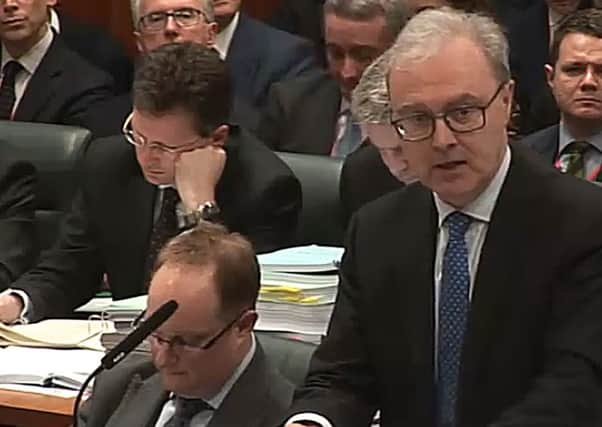Act of Union '˜forbids UK Government from starting Brexit'


Giving evidence in a historic legal challenge over Brexit this morning, Lord Advocate James Wolffe QC argued that the legislation that created the United Kingdom gives power to alter laws in Scotland to Westminster, not the crown.
The UK Government is arguing that it has the right to use royal prerogative powers to trigger Article 50 and begin the formal process of leaving the EU.
Advertisement
Hide AdAdvertisement
Hide AdMr Wolffe told 11 Supreme Court justices that the Act of Union gave power to alter legislation “exclusively to parliament and to those authorised by parliament”.
Mr Wolffe was referring to a passage in the Act of Union which states: “all other laws in use within the Kingdom of Scotland do after the Union and notwithstanding thereof remain in the same force as before but alterable by the Parliament of Great Britain”
He has also argued that conventions established when the Scottish Parliament was created require any legislation affecting devolved matters passed by Westminster must be approved by Holyrood through a legislative consent motion.
The Lord Advocate said: “Against the background of the Claim of Right and the Bill of Rights it would have been extraordinary if power to change laws in use within the Kingdom of Scotland, which is the phrase in use in the Act and Treaty of Union, had been given to the Crown.”
Mr Wolffe added: “The question of who had authority with regards to Scots Law was a matter of significance to the framers of the Union legislation.
“I say it is not a matter simply of footnoting, to note the power to change the laws of Scotland where given to power and, of course, to those whom parliament has authorised and not to the Crown.
“I say that is consistent with the limiting law of constitutional law that sets bounds of the us prerogatives and preclude the United Kingdom government from asserting the power to make the significant changes to the laws of the land by virtue of the prerogative which they claim in this case”.
The hearing, which was appealed to the Supreme Court after the UK Government lost a ruling at the High Court, concludes today with a judgement expected in January.